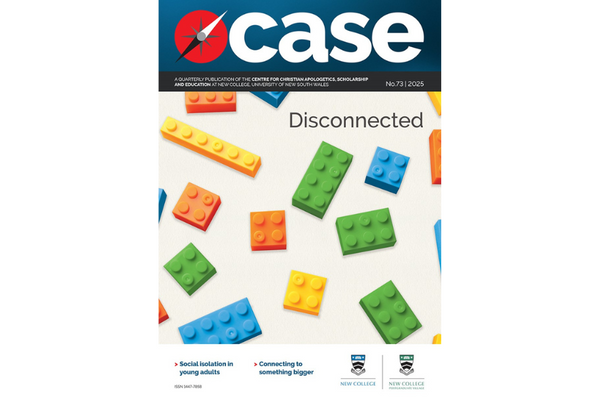The Ethics of Evangelism

This is a timely book for people who want to reflect on assumptions underlying cultural discourses and codes of conduct about proselytizing in Australia. Its central aim is to answer objections frequently raised against proselytizing, defend the possibility of ethical forms of proselytizing, and develop criteria to distinguish between ethical and unethical forms of proselytizing. The author identifies himself as an evangelical Mennonite Christian. His argument is located within the discipline of philosophical ethics, and is one of advocacy rather than disinterested neutrality. His purpose is to respond to the position that proselytizing is, by its very nature, immoral. He also hopes to weaken the more modest claim that much, if not most, proselytizing is immoral. In addition, Thiessen addresses his argument to evangelicals who ‘sometimes seem to be so preoccupied with the end of “winning souls for Christ”, that they have little concern about the means to achieve this end’ (p22).
The book draws upon examples from Christian, Jewish and Islamic traditions, cults and new religious movements. Thiessen offers a formal definition of proselytizing (p19), which focuses on explicit verbal communication intended to lead someone to convert. He argues that it is the verbal communication resulting from inquiries about an attractive lifestyle that leads to conversion, rather than the attractive lifestyle itself. Thiessen believes that it is best to use the one word ‘proselytization’ to describe the phenomenon of witness, distinguishing between its ethical and non-ethical forms (in contrast to those who adopt different words to describe positive and negative forms of religious witness, reserving ‘proselytization’ to denote its corrupted form). This allows the debate to be reframed from one which questions whether or not religious witness is acceptable, to one that acknowledges that ethical witness can occur and asks what it constitutes. In the second section of the book, Thiessen responds to the arguments that proselytization is inherently wrong. These include arguments that proselytizing is immoral because it makes universal truth claims that implicitly or explicitly entail criticism of other positions; it attempts to persuade another of beliefs we cannot verify; it is ‘often’ coercive, invasive or persuasive; it can exploit human vulnerability or need; it expresses intolerance; it can stem from questionable egocentric motives (e.g. bolstering one’s own faith, or gaining power); it can be religiously imperialistic, having been complicit with western colonialism and cultural genocide; it can have undesirable outcomes; and it could create a monochrome world. In defense of proselytization, Thiessen identifies inconsistencies in the arguments, or points out distinctions that have been overlooked. For example, on the issue of persuasion and freedom of choice he concludes: ‘There is all the difference in the world between brainwashing, and a lover gently and carefully trying to persuade his beloved to marry him’ (p81). At other times, he agrees that some forms of proselytizing are immoral e.g. the use of physical force. I found that I disagreed with some of Thiessen’s points and wanted to extend those arguments that I felt were insufficient. However, a couple of the arguments were particularly helpful. In chapter 5, tolerance is framed as it was traditionally, with ‘persons, not with ideas’ (p106). Hence tolerance is a subcategory of respect, leading to ‘restraint in how one responds to that with which we disagree’ (p106). As a result Thiessen concludes:
Being tolerant is quite compatible with trying to convince the other person of the error of their ways, but at the same time respects their right to believe whatever they want to believe, as well as their right not to listen to those who claim to have the truth. (p110)
In chapter 4, Thiessen discusses the issue of exploiting vulnerability and need to gain converts. He argues that human vulnerability and need are characteristic of the human condition and that it is precisely the realisation of this that can cause people to reach out to religion. Thiessen points out that responding to human vulnerability does not, in itself, make proselytizing psychologically coercive. Furthermore, if spiritual answers for human vulnerability can only be found in religion, surely it is uncharitable to interpret responses that share these answers as an exploitation of that vulnerability. Thiessen argues that proselytizers need to be sensitive to inauthentic conversions based on advantages that are incidental to the conversion process. Whilst acknowledging that all religions would regard the blatant use of material incentives to seek conversions as unethical, he observes that the social or political context can present incentives to transfer religious affiliation. For example, ‘being western’ may be an inducement to transfer religious affiliation in some contexts. However, he makes it clear that while a person may be motivated to convert from a genuine spiritual desire, or from a desire for advantages that may be incidental to the conversion process, only the individual concerned can tell which desire was acted on. This raises important questions: When can we say that the presence of advantages that are incidental to a conversion become coercive influences? If someone chooses to convert in the context of receiving material or medical care, is it reasonable to assume that the ‘caring’ response exploited a need in order to gain a convert? In the last section of the book Thiessen seeks to develop a universal ethic for the possibility of proselytizing, maintaining that human ethical codes will eventually converge, either through discovering a natural law by reason, or finding common ground through pragmatic consensus in a pluralistic world. He then proposes three common ethical values upon which he builds his argument—the dignity and worth of persons, respect for persons, and love for persons. He develops fifteen criteria by which to distinguish ethical from unethical proselytizing, which logically extend from the philosophical foundations he has laid out and his defense against critics.
The criteria address issues of personal dignity and care; absence of physical, psychological and social coercion; the use of inducements; rationality of argument; truthfulness; humility; tolerance; right motivation; respect for identity; cultural sensitivity; and a lack of preoccupation with results. Finally he presents the Golden Rule: Ethical proselytizing operates under the assumption that the other has the right to proselytize as well. Thiessen offers these criteria as a starting point for a discussion about a Christian ethics of witness. Since the categories and argument are fundamentally philosophical rather than biblical, Christian people would do well to carefully consider them in the light of scripture.Thiessen condemns forms of proselytizing that he concludes to be non-ethical. However, I disagreed with some of his conclusions. An appeal to an authoritative code of conduct or ethical norm, rather than to scripture itself, to rebuke a brother or sister, does not seem wise. Nevertheless, in a society that is governed by laws and codes of conduct, Christian people are increasingly being called upon to negotiate codes of conduct about proselytization and to live them out. Vigilance is needed in this process of shaping and endorsing ethical norms about proselytizing in our society. As Thiessen himself points out ‘what if [agreed] norms are themselves problematic?’ and can I add ‘what if Christian people do not believe they are consistent with scripture?’ Thiessen has sacrificially served us in developing an in-depth evangelical response that I am sure will prove a valuable resource.
Leave a comment
Comments will be approved before showing up.



